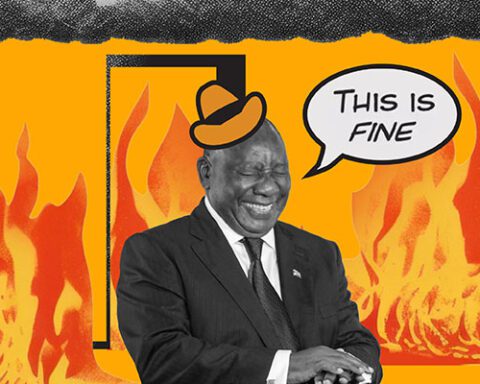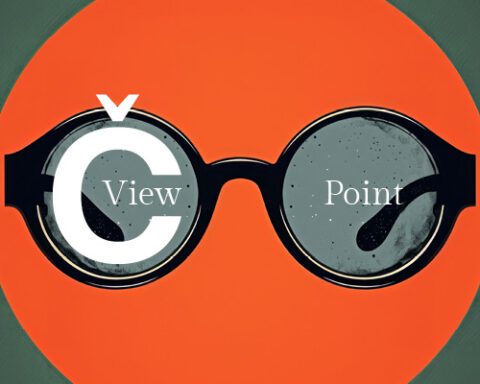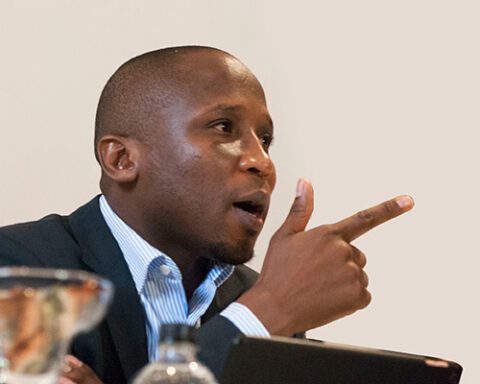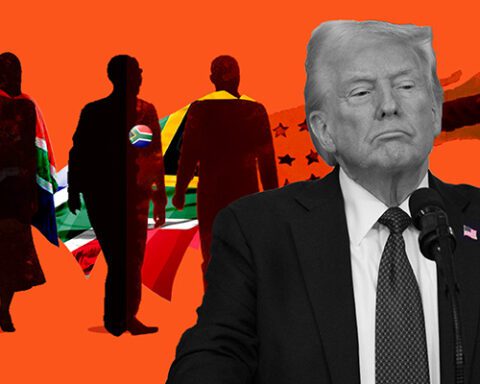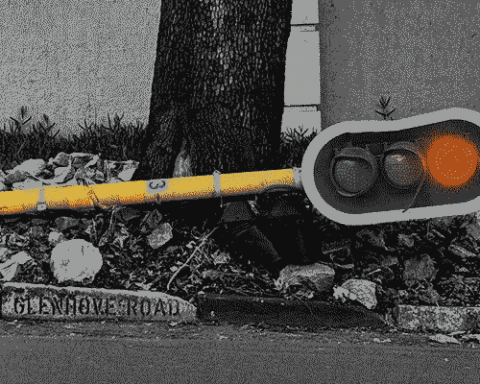The ANC has been talking about the fabled National Health Insurance (NHI) for so long that you’d be forgiven for forgetting that this new plan is about as likely to be magicked into existence as a unicorn-drawn sleigh.
Signs have emerged over the past month which illustrate that while the ANC continues to talk big about NHI as an ill-fated populist ploy to shore up its wanning support, it knows it cannot afford it.
“NHI is dead in the water; everyone can see it,” one politician told Currency after finance minister Enoch Godongwana’s “no-budget budget” revealed that hardly a cent has been set aside for what would be the most consequential overhaul of the health sector yet.
Godongwana’s Budget Review dedicated a measly amount of less than R10bn to the NHI. Over the medium term, Treasury said, “the indirect and direct conditional grants for NHI are allocated R8.5bn and R1.4bn respectively”.
Now that might just about cover a Digital Vibes communications contract, but it’s less than 2% of the amount economists reckon is needed every year to fund NHI.
Last year, Momentum Health Solutions’ Damian McHugh put the annual cost at between R900bn to R1.3-trillion to give everyone the equivalent of private health care, as Gauteng premier Panyaza Lesufi infamously promised before last year’s election.
Business Unity South Africa calculated that for NHI to be implemented, VAT would have to be hiked from 15% to 22%, or steep new payroll taxes implemented. Given the furore over Godongwana’s VAT proposal last month, how likely does that seem now?
Yet National Treasury’s parlous allocation suggests that while Lesufi or health minister Aaron Motsoaledi might not know it, NHI is a sop to appease the leftist faction of the party which the pragmatists in the ANC have no intention of funding
Speaking this week to Currency, Discovery Health CEO Adrian Gore said the stakes couldn’t be higher.
“If you wreck the health-care system you will destroy the economy. And people know that. Look at the tax increases now, and we’ve showed how much tax you need to fund an NHI system, so it’s just not doable,” he said.
Gore believes that rationality will triumph in the end, perhaps hastened by the reality of just how little money there is in the Treasury to finance even necessary measures like social grants, never mind the unicorn-grazing ground that is NHI.
“I don’t think you have the ability to do anything without the fiscal room,” said Gore.
Fiscal room there most certainly isn’t. But while President Cyril Ramaphosa has hinted at a “compromise” over NHI, which could result in a much-diluted version, there has been no official word on this. Motsoaledi, tellingly, says he knows nothing about a “compromise”.
Propaganda fail
For those sceptical about the plan, the last thing the advocates of NHI would have wanted to see was a scandal over wasted money – years before it has even come into being.
Last month, it emerged in parliament that in less than a year since the NHI Act was signed into law in May, the government had already spent R28.4m on advertising the NHI on highway billboards and various social media channels.
It was an inconvenient revelation at a time when Motsoaledi was also forced to concede he had no funds to fill 2,000 vacant medical positions in public hospitals, in a country where there is only one doctor for every 2,230 patients.
It left other political parties, who had opposed NHI all along, spitting mad.
“It is unconceivable that this government, which cannot provide basic health-care services to its people, chooses to splurge millions on advertisements that promote an unrealistic, unimplementable health-care scheme,” said the DA’s Michéle Clarke. This “taxpayer-funded propaganda campaign” only served to bolster Motsoaledi’s vanity project, Clarke said.
But the revelations over the advertising blitz are so alarming precisely because of the unique architectural design of NHI.
The way it is envisaged is that there will be a single NHI fund, which will have a monopoly on buying all health services from doctors, nurses and other professionals. Medical aids will cease to exist, and everything spent on private medical aid will be collapsed into that state fund.
There are logical fallacies all over this design, however.
For a start, few would argue that it is iniquitous that just 15% of the country spends R239bn every year to belong to a medical aid, while the other 85% of South Africans survive on the R259bn allotment from National Treasury.
But where Ramaphosa has fatally miscalculated is by completely ignoring the reality that it is those 15% of South Africans who also pay most of the tax used to fund the other 85%. Should the government scrap medical aids entirely, what is certain is that those taxpayers won’t simply divert that R239bn into the new NHI fund.
As Wits School of Governance professor Alex van den Heever argued two years ago: “Medical scheme members are already paying twice – first for private health care, then, second, through taxes to support the public health-care system.”
Discovery itself calculated that private medical scheme members already fund about 80% of South Africa’s public health-care needs through the taxes they pay, since they earn higher incomes. If their treatment choice is dramatically curtailed, don’t bet on them being willing to continue paying.
But what the eyebrow-raising advertising campaign has underscored – in bold yellow highlighter – is that even with no money yet in this fund, the state is already wasting taxpayers’ money on the wrong things. With the trust compact between taxpayers and the public so fragile, this isn’t the sort of thing Motsoaledi can afford.
Schizophrenic policy
The truth is, the government probably doesn’t even have the money to fight the legal challenges to NHI, let alone finance the scheme.
This week, medical aids represented by the Board of Healthcare Funders (BHF) began their case against the government in the high court in Pretoria. This was followed swiftly by another constitutional challenge to the legislation by the South African Private Practitioners Forum, and another from the Hospital Association of South Africa.
The BHF kicked off its argument with a rather perfunctory legal request: that Ramaphosa provide the “record of decision” by which he decided to sign the bill, which would reveal the objections of all those who had protested that it was unconstitutional.
Ramaphosa, bizarrely, refused to provide this record, which led the BHF to conclude that it is “abundantly obvious that the president wants to avoid filing his record of decision on the NHI Bill, which will no doubt show that he ignored several submissions advising him that it was unconstitutional”.
Tellingly, however, in the court file sat a letter of objection to the NHI Bill from none other than National Treasury itself, raising concerns about several constitutional problems with the legislation.
For a country that beat its chest at the World Economic Forum in January about its “investment potential”, economically ruinous legislation such as this suggests the converse, demonstrating why it is so hard for countries like the US to get a correct reading on schizophrenic South African policy.
Ironically, it is people like Gore who have done more to sell South Africa’s economic dream to foreign investors than anyone, despite these mixed messages. Why does he do this, when the same government is trying to hobble his business at the next turn?
“Because there’s no choice,” he told Currency, bluntly. “Government is not a unified edifice: there are sensible policymakers in different parts and [while] it is frustrating, [with] a lot of ideology all over the place, there are sensible voices and ears. It’s worth the effort.”
This messy, painful narrative will end up in a “workable solution”, says Gore. Perhaps – but supposing he is right, why couldn’t we have skipped the angst and gone there from the beginning?
Sign up to Currency’s weekly newsletters to receive your own bulletin of weekday news and weekend treats. Register here.



